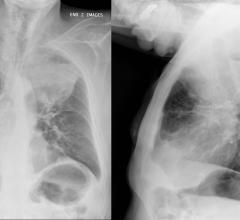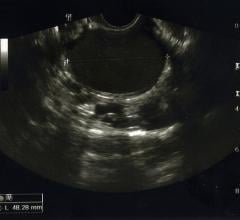
February 14, 2018 — Patients and their caregivers desire information about upcoming imaging examinations, but many are not getting it, according to a new study published online in the journal Radiology. The researchers found that half of all patients and caregivers end up seeking information on their own.
As medicine shifts to an era of patient-centered care, much of the efforts in radiology have focused on communicating the results of imaging tests to patients. Less attention has been paid to engaging patients prior to and during the examination, said study lead author Jay K. Pahade, M.D., an associate professor of radiology at the Yale School of Medicine in New Haven, Conn.
To find out more about this often-overlooked aspect of care, in early 2015 Pahade and colleagues surveyed patients and caregivers at three pediatric and three adult hospitals across the United States. Questions focused on patient and caregiver preferences for receiving imaging test information before an exam and what type of information they found most useful.
Overall, 1,117 of 1,438 respondents, or 78 percent, reported receiving information about their examination.
“This means one in five people are showing up for the exam without any information about the test they are getting,” Pahade said. “This is an important finding in today’s healthcare system, where we want more patient engagement and involvement.”
Ordering providers were the predominant and preferred source of examination-related information. For pre-examination information, respondents placed the highest importance on information about examination preparation and the lowest importance on whether an alternative radiation-free examination could be used. In the pediatric hospitals, respondents — typically parents — placed an even higher value on pre-examination information.
“These results show that what we as radiologists think patients value is not necessarily what they actually value,” Pahade said. “Our study found that patients value basic information related to the test more than information related to the radiation dose, so we should probably shift our focus to providing that.”
Pahade noted that a lack of information can have a dramatically negative effect on the patient’s experience. Anxiety is known to be higher among uninformed patients, he said.
“In the radiology realm, we need to take more ownership over the entire imaging process,” he said. “One big gap has been in the pre-imaging part of that process, and the data show we have work to do in closing that gap.”
Half of respondents reported seeking information themselves. Connecting patients with already existing resources is an easy and cost-effective way to ensure that they are well-informed, Pahade noted. At Yale, appointment reminders sent to patients now include, along with the examination time and location, links to pertinent information on RadiologyInfo.org, an online resource for medical imaging, jointly sponsored by the Radiological Society of North America (RSNA) and the American College of Radiology. Pahade joined the committee that reviews the site after the survey was completed.
RadiologyInfo.org tells patients how various X-ray, computed tomography (CT), magnetic resonance imaging (MRI), ultrasound, radiation therapy and other procedures are performed. It addresses what patients may experience and how to prepare for their exams. The website contains over 230 procedure and disease descriptions covering diagnostic and interventional radiology, nuclear medicine, radiation therapy and radiation safety in English and Spanish. It also offers videos of radiologists explaining common imaging exams.
“We need to increase visibility of sites that provide some of this information,” Pahade said. “Half of our studied population stated they tried to find information on their own, but there was very little use of radiology-created sites like RadiologyInfo.org that can serve as a great resource.”
For more information: www.radiologyinfo.org


 April 17, 2024
April 17, 2024 








